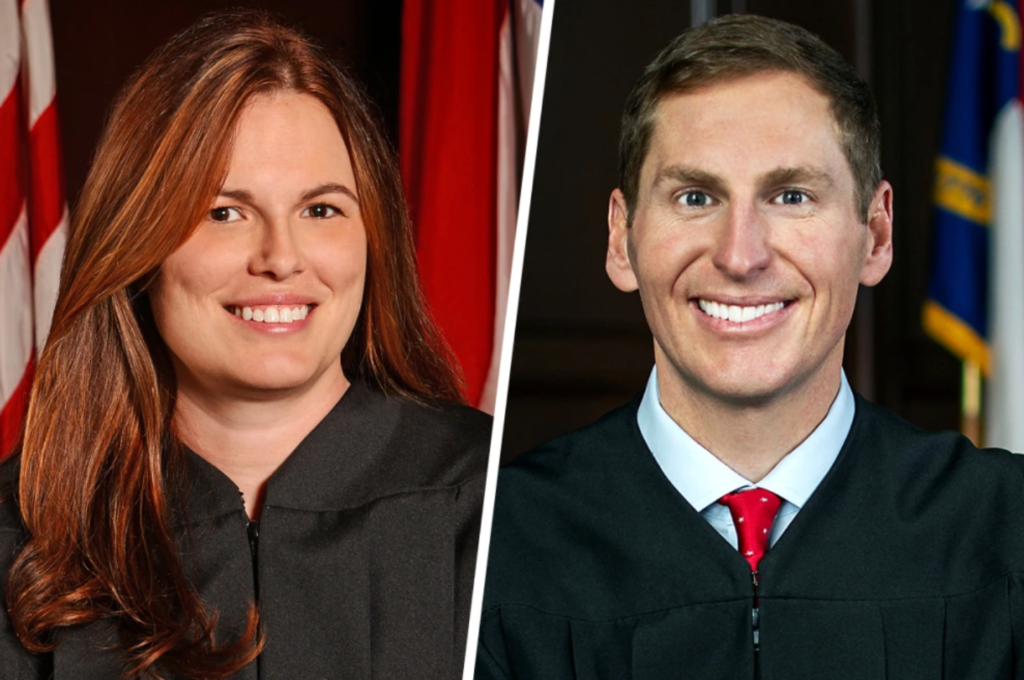Controversial Legal Challenge Over North Carolina Supreme Court Election
Jefferson Griffin, a Republican who narrowly missed securing a seat on the North Carolina Supreme Court, is attempting to challenge the election results by rejecting 60,000 ballots. This approach, often criticized as a form of voter suppression, has sparked debate even among those skeptical of election integrity claims.
The North Carolina Supreme Court recently issued an order preventing the state from certifying Democratic Justice Allison Riggs as the victor, despite recounts confirming her lead over Griffin by 734 votes out of over 5.5 million cast.
In the court’s 4-2 decision, all but one Republican justice voted to halt the certification process, with Riggs abstaining. This decision allows the court to review Griffin’s challenge, which aims to invalidate a significant number of votes from the November election.
Election Integrity Dispute
Griffin’s challenge is based on a theory which has received criticism for potentially suppressing votes. It targets ballots cast by voters whose registration files are missing a driver’s license number or the last four digits of a Social Security number. Election officials have clarified that such omissions often result from administrative oversights, not voter fraud. Voters in question had to verify their identities when voting, typically using a driver’s license.
Bob Orr, a former North Carolina Supreme Court justice, remarked, “I appreciate fighting for every vote: If you honestly think illegal votes have been cast, it’s legitimate to try to prove that. But the bottom line is: Did anyone vote illegally? Have you been able to prove one person voted illegally? At this point, no.”
The Underlying Theory and Its Critics
The theory behind Griffin’s contestation comes from Carol Snow, an activist known for questioning election results. Snow advocates that missing voter details facilitate electoral fraud, yet has provided no substantial evidence to support these claims. Legal analysts and election authorities have dismissed such allegations, asserting that database issues do not equate to fraudulent activities.
Griffin’s legal actions are part of a larger movement that uses unfounded allegations to cast doubt on election processes. Although Griffin has chosen not to speak on the ongoing litigation, opposition voices, including members of Riggs’ campaign, urge him to acknowledge the election outcome.
“North Carolina voters have already spoken,” expressed Riggs’ campaign. “This election should not be decided in court.”





